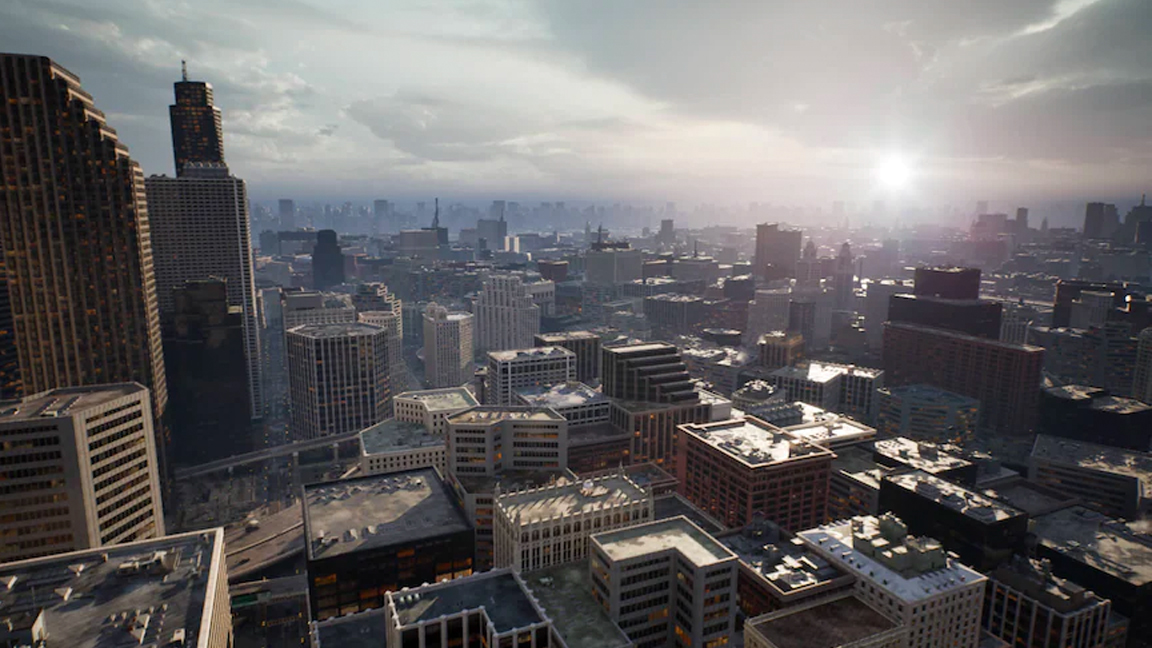
Bad news for those using Unreal Engine for VFX or animation this week – or at least for some. Epic Games has confirmed that it will begin charging industries outside gaming to use the 3D graphics engine next year.
Until now the company has not charged directly for use of Unreal Engine. Instead it charges royalties for projects that surpass $1m in revenue – and only those that use code from the engine. That means that while the developers of big-selling games pay royalties, those who use Unreal Engine for film making and other uses pay nothing. Epic Games now plans to start charging subscription fees on a per-seat basis, but it has clarified that not everyone will be affected (also see our pick of the best 3D apps).
Read our RoboCop: Rogue City review to discover how this platform's tech has elevated the game, and why getting people onboard at a student level is vital for future developers.
Tim Sweeney addresses Epic Games Layoffs... #UnrealFest pic.twitter.com/49t4Tf20SAOctober 3, 2023
Speaking at Unreal Fest 2023, Epic Games CEO Tim Sweeney said Unreal Engine would become “a licensable piece of software like Maya or Photoshop” with a subscription-based pricing model. Studios using it for non-gaming work like animation, VFX and visualization will be charged through a “seat-based enterprise software licensing model”
The video above, shared from the event by the creative developer Immature on Twitter, shows Sweeney outlining the company’s sources of income, which will include licensing Unreal Engine, in the context of Epic's recent decision to lay off 16% of its staff.
Won’t affect. There will be minimum revenue thresholds for commercial projecrs, and student/educator use will remain free.October 5, 2023
Understandably, the news has caused concern among creatives, especially independent filmmakers and non-professionals. Unreal Engine was developed as a graphics engine for gaming, but is now routinely used for real-time rendering and virtual production in everything from animation, to commercials, including by aspiring filmmakers who may not be able to pay for a subscription.
Replying to a question raised on X, Sweeney has now clarified that there will be minimum revenue thresholds for commercial projects that have to pay for a subscription and that student and educator use of Unreal Engine will remain free.
Get the Creative Bloq Newsletter
Daily design news, reviews, how-tos and more, as picked by the editors.
There is no detail as yet on what the threshold will be, but the idea seems to be to charge larger studios and developers. It's also unknown what the Unreal Engine price or terms will look like – Sweeney said pricing would not be "unusually expensive, or unusually inexpensive”. The move will not affect game developers who will continue to pay a 5 per cent royalty rate after revenue passes $1m.
Sweeney said he was announcing the change ahead of time to ensure transparency. Some have suggested that the move was inevitable, noting that it was unusual that access has remained free. However, others have raised concerns that a subscription model could means some creatives cannot afford to use the tool. "Can you imagine that there are some really good unreal engine users that cannot afford subscription in some countries? Please keep it free to use and monetize results for movie and nongame usage," the producer Mihai Ogasanu wrote.
In our Unreal Engine 5.3 review, we note that Unreal Engine continues to redefine the game engine industry with a new skeletal mesh editor, cloth editor and volumetric capabilities.

Thank you for reading 5 articles this month* Join now for unlimited access
Enjoy your first month for just £1 / $1 / €1
*Read 5 free articles per month without a subscription

Join now for unlimited access
Try first month for just £1 / $1 / €1

Joe is a regular freelance journalist and editor at Creative Bloq. He writes news, features and buying guides and keeps track of the best equipment and software for creatives, from video editing programs to monitors and accessories. A veteran news writer and photographer, he now works as a project manager at the London and Buenos Aires-based design, production and branding agency Hermana Creatives. There he manages a team of designers, photographers and video editors who specialise in producing visual content and design assets for the hospitality sector. He also dances Argentine tango.
